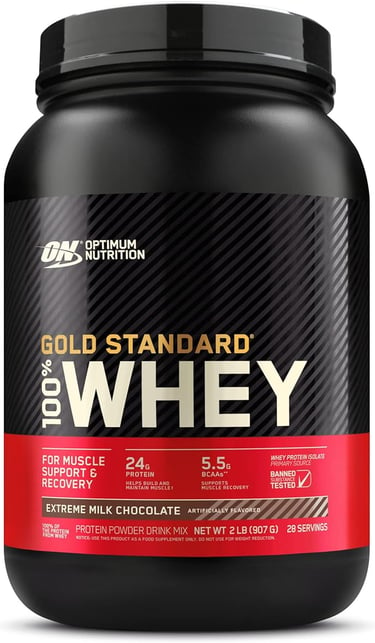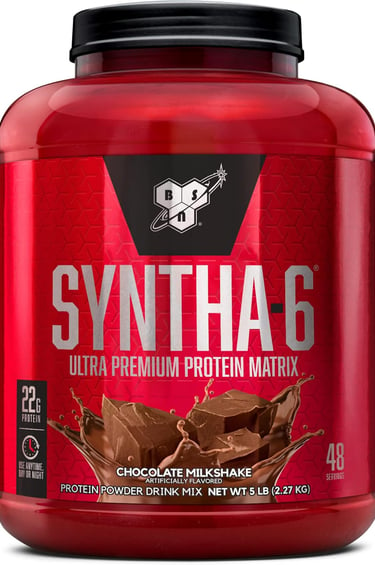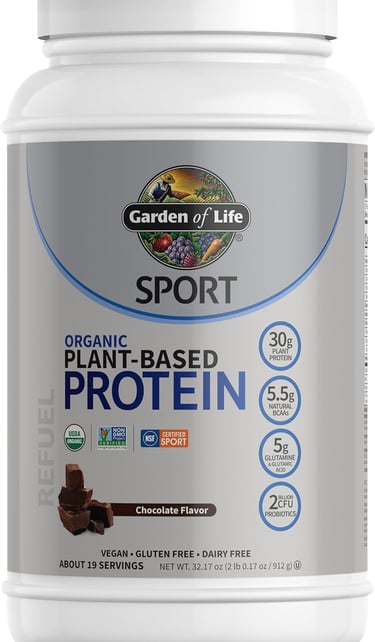Visit Innatefit1.com for exercise wear and equipment!!!

Unlocking the Secrets of Post-Workout Protein: Your Guide to Maximizing Muscle Recovery and Strength Gains
Discover the secrets to maximizing your post-workout recovery and strength gains. Learn about the best protein sources, the benefits of different types, and how to time your protein intake for optimal muscle recovery and growth.
NUTRITION AND RECOVERY
Joseph Battle
10/21/20246 min read


Introduction:
Embarking on a fitness journey can be exhilarating, but the true measure of success lies in how well you recover and build muscle after each workout. Protein, the building block of our muscles, plays a crucial role in this process.
In this comprehensive guide, we'll delve into the best protein sources, the benefits of different types, and how to time your protein intake for maximum effectiveness. Let's unlock the secrets to optimizing your post-workout recovery and fueling your strength gains.
The Importance of Post-Workout Protein
Engaging in physical exercise, whether it's weightlifting, high-intensity interval training, or endurance activities, puts significant stress on your muscles. During these demanding workouts, your muscle fibers undergo microscopic tears, which is a natural part of the growth and adaptation process. To repair these tears and rebuild stronger, more resilient muscles, your body requires a steady supply of protein.
Protein is essential for muscle protein synthesis, the process by which your body uses amino acids to construct new muscle tissue. By consuming the right type and amount of protein after a workout, you can kickstart this recovery process, setting the stage for improved strength, endurance, and overall fitness.
The Role of Protein in Muscle Recovery
Protein is a complex macronutrient composed of amino acids, which are the building blocks of our muscles. When you engage in physical activity, your muscles require a constant supply of these amino acids to repair and rebuild. Failing to provide your body with the necessary protein can lead to prolonged muscle soreness, delayed recovery, and a plateau in your fitness progress.
By replenishing your body with high-quality protein after a workout, you can effectively support the muscle recovery process. This not only helps alleviate post-exercise discomfort but also lays the foundation for future strength gains and improved performance.
The Best Protein Sources for Post-Workout Recovery
When it comes to post-workout protein, not all sources are created equal. While there are numerous protein options available, some stand out as particularly beneficial for muscle recovery and growth. Let's explore the top protein sources and their unique advantages.
Whey Protein: The Gold Standard Whey protein is widely regarded as one of the best protein sources for post-workout recovery. Derived from the liquid portion of milk, whey protein is rapidly absorbed by the body, making it an excellent choice for immediately after your workout.
Whey protein contains a high concentration of essential amino acids, including branched-chain amino acids (BCAAs) like leucine, which play a crucial role in stimulating muscle protein synthesis. Additionally, whey protein is easy to digest and can be conveniently consumed in the form of shakes or smoothies, making it a popular choice among fitness enthusiasts.
Casein Protein: The Slow-Release Option In contrast to whey protein, casein protein is a slower-digesting protein source derived from milk. While whey protein is rapidly absorbed, casein protein forms a gel-like substance in the stomach, leading to a more gradual release of amino acids into the bloodstream.
This slow-release property makes casein protein an excellent choice for providing a steady supply of amino acids to your muscles, especially during the overnight recovery period when your body is in a fasted state. Consuming casein protein before bedtime can help support muscle growth and repair while you sleep.
Plant-Based Proteins: Versatile and Sustainable For those following a plant-based diet or seeking alternative protein sources, there are several excellent options available. Soy protein, pea protein, and a combination of various plant-based proteins (such as rice, hemp, and pumpkin seed protein) can be effective in supporting post-workout recovery.
These plant-based proteins often contain a complete amino acid profile, making them a viable option for muscle building and repair. Additionally, plant-based proteins are often easier to digest and more environmentally friendly, making them an attractive choice for health-conscious individuals.
Timing Your Protein Intake for Maximum Benefit
The timing of your protein consumption plays a crucial role in optimizing muscle recovery and strength gains. Immediately after a workout, your muscles are primed and ready to absorb and utilize the amino acids from the protein you consume. This "anabolic window" is a critical period where your body is most receptive to protein and can effectively kickstart the muscle repair and growth process.
Ideally, you should aim to consume a protein-rich meal or supplement within 30 to 60 minutes after your workout. This rapid influx of amino acids can help reduce muscle damage, enhance glycogen replenishment, and stimulate muscle protein synthesis, setting the stage for improved recovery and subsequent strength gains.
It's important to note that the size and composition of your post-workout meal or supplement can also influence its effectiveness. Experts recommend consuming a combination of high-quality protein and carbohydrates, as the carbohydrates can help replenish glycogen stores and support the absorption of the protein.
Adding Fruit to Your Post-Workout Protein: Unlocking Synergistic Benefits
While protein is undoubtedly the star player in the post-workout recovery game, incorporating fruit into your post-workout routine can provide additional benefits. Fruits are rich in natural sugars, vitamins, minerals, and antioxidants, all of which can complement the muscle-building and recovery-boosting properties of protein.
The combination of protein and fruit can offer several advantages:
Enhanced Glycogen Replenishment: The natural sugars found in fruits, such as fructose and glucose, can help refuel your depleted glycogen stores after an intense workout, providing your muscles with the energy they need to recover and grow.
Improved Nutrient Absorption: Certain fruits, like berries, are high in antioxidants that can help reduce inflammation and support the absorption of the amino acids from the protein you consume.
Increased Palatability: Adding fruit to your post-workout protein can make the taste more appealing, encouraging you to consume the necessary nutrients and supporting your overall adherence to a healthy recovery routine.
When choosing fruits to pair with your post-workout protein, opt for options that are high in carbohydrates, such as bananas, pineapples, or dried fruits. These fruits can help replenish glycogen stores and provide a quick energy boost, complementing the muscle-building properties of the protein.
The Importance of Hydration in Post-Workout Recovery
While protein is the MVP of post-workout recovery, it's important not to overlook the crucial role of hydration. During exercise, your body loses significant amounts of fluid through sweat, which can lead to dehydration if not properly replenished.
Dehydration can have a detrimental impact on your recovery process, as it can impair muscle function, delay glycogen replenishment, and even contribute to muscle cramps and fatigue. To optimize your post-workout recovery, it's essential to ensure you're drinking enough water before, during, and after your workout.
Aim to drink water throughout your workout and continue hydrating after you've finished. The exact amount of water you need will depend on factors like the duration and intensity of your exercise, as well as your body composition and climate. As a general guideline, aim to consume around 16-24 ounces (500-700 ml) of water for every pound (0.45 kg) of body weight lost during exercise.
Incorporating Strength Training: The Synergy of Protein and Exercise
To truly maximize the benefits of post-workout protein, it's important to pair it with an effective strength training regimen. Strength training, which involves the use of resistance exercises like weightlifting, not only helps build and maintain muscle mass but also enhances the body's ability to utilize protein effectively.
When you engage in strength training, you create microscopic tears in your muscle fibers, which then need to be repaired and rebuilt stronger. By consuming the right type and amount of protein after your strength training workout, you can support this process and facilitate muscle growth and repair.
The combination of strength training and strategic protein intake can lead to numerous benefits, including:
Increased Muscle Mass: The synergy between protein and strength training helps stimulate muscle protein synthesis, leading to the development of new muscle tissue and increased muscle mass with time.
Improved Strength and Power: As your muscles grow and become more resilient, you'll experience gains in overall strength and power, allowing you to push the boundaries of your physical capabilities.
Enhanced Metabolic Rate: Increased muscle mass boosts your resting metabolic rate, meaning your body will burn more calories even when you're not actively exercising.
Long-Term Muscle Retention: By maintaining a consistent strength training routine and adequate protein intake, you can preserve your hard-earned muscle mass, even as you age.
Incorporating both strength training and strategic protein consumption into your fitness regimen is a powerful combination for maximizing muscle recovery, building strength, and achieving your overall fitness goals.
Conclusion: Optimizing Your Post-Workout Recovery for Sustainable Gains
In the pursuit of fitness and strength, the key to unlocking your full potential lies in your post-workout recovery strategies. By understanding the importance of high-quality protein, the benefits of different protein sources, and the timing of your consumption, you can create a tailored approach that maximizes muscle recovery and sets the stage for impressive strength gains.
Remember, incorporating a variety of protein options, including whey, casein, and plant-based sources, can provide a well-rounded approach to your post-workout nutrition. Pair this with the added benefits of fruit and proper hydration, and you've got a winning formula for optimizing your fitness journey.
Ultimately, the secret to sustainable muscle growth and strength gains lies in the consistent and strategic application of post-workout recovery tactics. By following the principles outlined in this guide, you'll be well on your way to unlocking your true athletic potential and achieving your fitness goals






